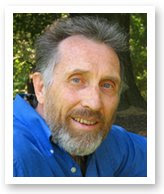
Psychology has many faces. When a person tries to manipulate someone by telling them the opposite of what they really want the other person to do ("Oh, no, you really don’t have to help. I’ll just struggle along the best I can") they are said to be using "reverse psychology."
Some people think being a psychologist means being able to know what someone else is thinking. More than once I have had someone tell me, "If you’re a psychologist, I better be careful what I say so that you don’t try to analyze me."
Other people think that a psychologist is just someone who has good insights and intuitions into people. In this sense everyone is a psychologist because we all have theories about human behavior. This type of untrained psychological insight is called "recipe knowledge."
Helping others work out their problems is sometimes seen as "doing" psychology. There are many different kinds of helpers: non-professional (friends, lay counselors, religiously trained people) and professional (therapists, social workers, psychiatrists, psychologists).
These last two are often confusing to many people. They are similar in that both professions try to help people make their lives better and both include post-college school and training for about the same amount of time. The basic difference is that psychiatrists are physicians and can prescribe medications — although psychologists are beginning to make inroads into this once private domain. Psychologists spend their training learning about psychological research and application with some medical (neurological and pharmacological) training. The reverse is true for psychiatrists. Both professions can legally get paid for helping people, teaching, and engaging in research.
So what does psychology really consist of? This is often asked because there are many misconceptions about the core of psychological knowledge. Many people think that the greatest psychologist that ever lived was Sigmund Freud. This is far from true. Psychology existed long before Freud; he was also a medical doctor, not a psychologist. Even though there are psychologists who practice what is known as Freudian psychoanalysis, they are a very small minority of psychologists — less than ten percent.
Since its modest beginnings, psychology has branched out into almost every area of human existence. The American Psychological Association has over fifty divisions and publishes over sixty-five journals. The subject covers a wide variety of human activity. A small sampling includes the psychology of: arts, law, ethnic minorities, military, environment, neuropsychology, gay/lesbian issues, and peace.
When psychologists study some aspect of human existence they use the tools of science. This means they use a technique called "systematic empiricism." It’s a fancy phrase for observing something. This means that when a psychologist "looks" at something and says, "this is what I saw," other psychologists also look to see if they can see the same thing. If others cannot verify the observation, then it becomes merely an interesting idea. All research findings are open to anyone else who would like to take a look.
This type of looking is limited to questions or problems that can be looked at using the tools of science. However, this does not mean that psychologists are uninterested in problems that cannot be tested scientifically. I remember in college that many people thought psychology could never study human emotions like love. Back then it was difficult to study because the tools for doing so were not yet developed. Now it is a subject that is drowning in research studies.
Like other sciences, it takes awhile for research results to trickle down to the average person. Some results hit the media if they have emotional impact and can make money for the media. These reports are a tiny fraction of what is currently happening in psychology at any given point in time. For example, the media has told us that talking on a cell phone while driving is not not a good idea. Psychologists want to know how bad it can be. They have found that the attention needed to talk on the phone while driving decreases the attention one needs to drive safely by a factor of forty percent!
Merely talking to a passenger while driving only has a minimal effect on driving attention. Drivers who use cell phones have the same probability for an accident as someone who has a blood alcohol-level of 0.08. What is more surprising is that this effect is the same whether one is using a hands-free cell phone or not.
What about research for other driving distractions? Did you know that text messaging while driving makes your chance of having an accident six times more likely? If you own an iPod and just scan for music while driving you double your chances of having an accident. Cars with TV screens reduce action times and increase the probability for swerving into another lane. Even drivers who use GPS navigation systems will drive outside their lane twenty-one percent of the time. This is compared to drivers not using such a system — they only stray outside their lane 1.5 percent of the time. Children who talk on cell phones while crossing a street are forty-three percent more likely to be hit by a car.
Psychology has also spent time studying common sense and folk wisdom. For example, most people think that religious people are more likely to be charitable than non-religious people. Research says it ain’t so. The following beliefs are held by many people. Psychology has shown them to be wrong.
- The full moon has an effect on human behavior.
- Opposites attract more than similarities.
- Breakfast is the most important meal of the day.
- Blind people compensate by having supersensitive hearing
If you are interested in reading more about false common beliefs you can check out the book, You Know What They Say . . . ; The Truth About Popular Beliefs by Alfie Kohn.




No comments:
Post a Comment